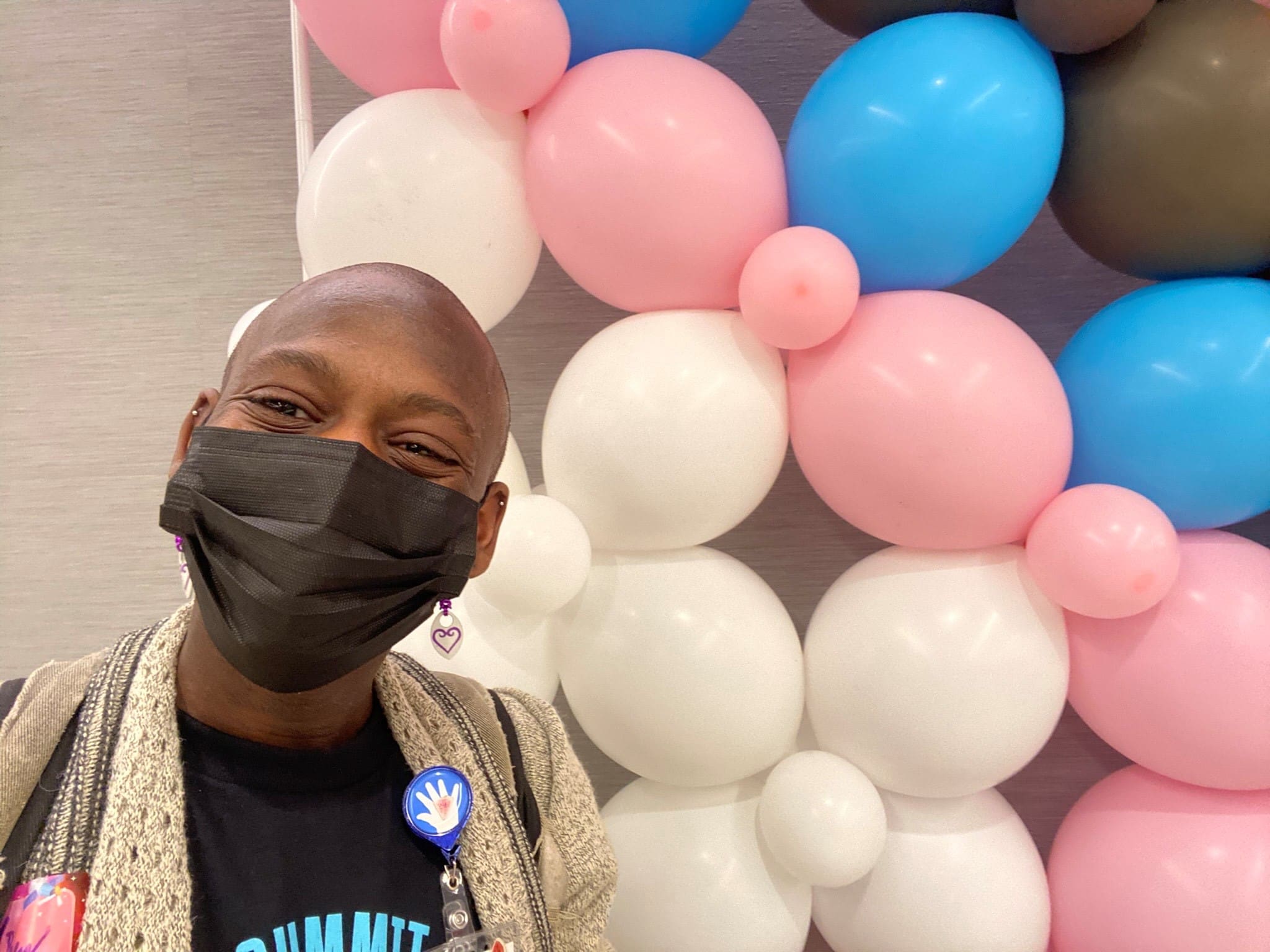Stigma: In and Out is a monthly series profiling the clients, providers and leaders of AFC’s Corrections Case Management program, which helps HIV-positive people emerging from prison or jail get the support they need upon reentry.
 Gaining freedom from jail or prison can be a bittersweet experience for people who were formerly in prison or jail. For most, life is not much better when returning to society — reengaging with family, finding a place to live, a job, and other resources can be a lifelong challenge.
Gaining freedom from jail or prison can be a bittersweet experience for people who were formerly in prison or jail. For most, life is not much better when returning to society — reengaging with family, finding a place to live, a job, and other resources can be a lifelong challenge.
This challenge is especially burdensome for individuals emerging from incarceration who are HIV-positive. In addition to securing the most basic of resources, people with HIV who are returning to the community must also navigate the health care system to ensure that their HIV treatment is uninterrupted. And then there’s the stigma — the stigma of being HIV-positive combined with the stigma of having been to prison or jail. How do individuals from this community overcome the hardships of re-entering society after being in prison or jail while living with HIV?
The AIDS Foundation of Chicago (AFC) and one of its corrections case management partners, the CBC Initiative of the Austin Health Center of Cook County, have been working together since 2000 to ease these hardships within their Corrections Case Management program, which provides strengths-based case management to people with HIV who have emerged from jail or prison.
This type of counseling focuses on developing a client’s strengths rather than correcting their perceived weaknesses — a stark contrast to many of their clients’ experiences while behind bars. The program also helps participants maintain a link to medical care, substance abuse treatment and mental health services, and provides assistance for housing, job readiness support and family unification services, all of which can be a challenge to maintain for an HIV-positive person leaving the corrections system.
“Helping people take ownership of their mistakes, and rebuilding,” is what one of the Corrections Case Management program’s champions, Brian Drummond, is excited about. Drummond has 13 years of experience in case management, and believes that “people can rehabilitate, people can change.”
Drummond started his career working with the Sheridan Program, a substance-abuse prison that operates on a therapeutic model, meaning clients receive counseling and other rehabilitative services while incarcerated. From an early point in his career, Drummond had to develop strategies for working with community partners that, for the most part, had a negative perception of the returning citizen.
Drummond plays his part in educating impacted individuals and empowering them, but also educating service providers. Working with the Parole Division of the Illinois Department of Corrections, Drummond conducts sessions that educate parole officers on HIV and the challenges of re-entry during their monthly team meetings. He believes that putting an educational spin on HIV is important in minimizing the stigma attached to HIV and helps to show people that this is not an individual’s disease — it is the community’s disease.
“When I come to the clients, I let them know that HIV doesn’t discriminate,” said Drummond. “HIV doesn’t care how many weights you lifted; it doesn’t care how tough you are; it doesn’t care what gang you are a part of; it doesn’t care how well you sold drugs. The reality is that we all are at risk.”
Started by Drummond himself, the Returning Citizen’s Circle is a re-entry support group specific to HIV-affected people. One of only two projects like it in the country, Drummond and his team are only helping a small fraction of those re-entering society while living with HIV in the U.S. But each individual who has gained a firm footing on life outside of jail or prison thanks to the Corrections Case Management program is a testament to the strength of this approach and the safety net of services provided by the program.


